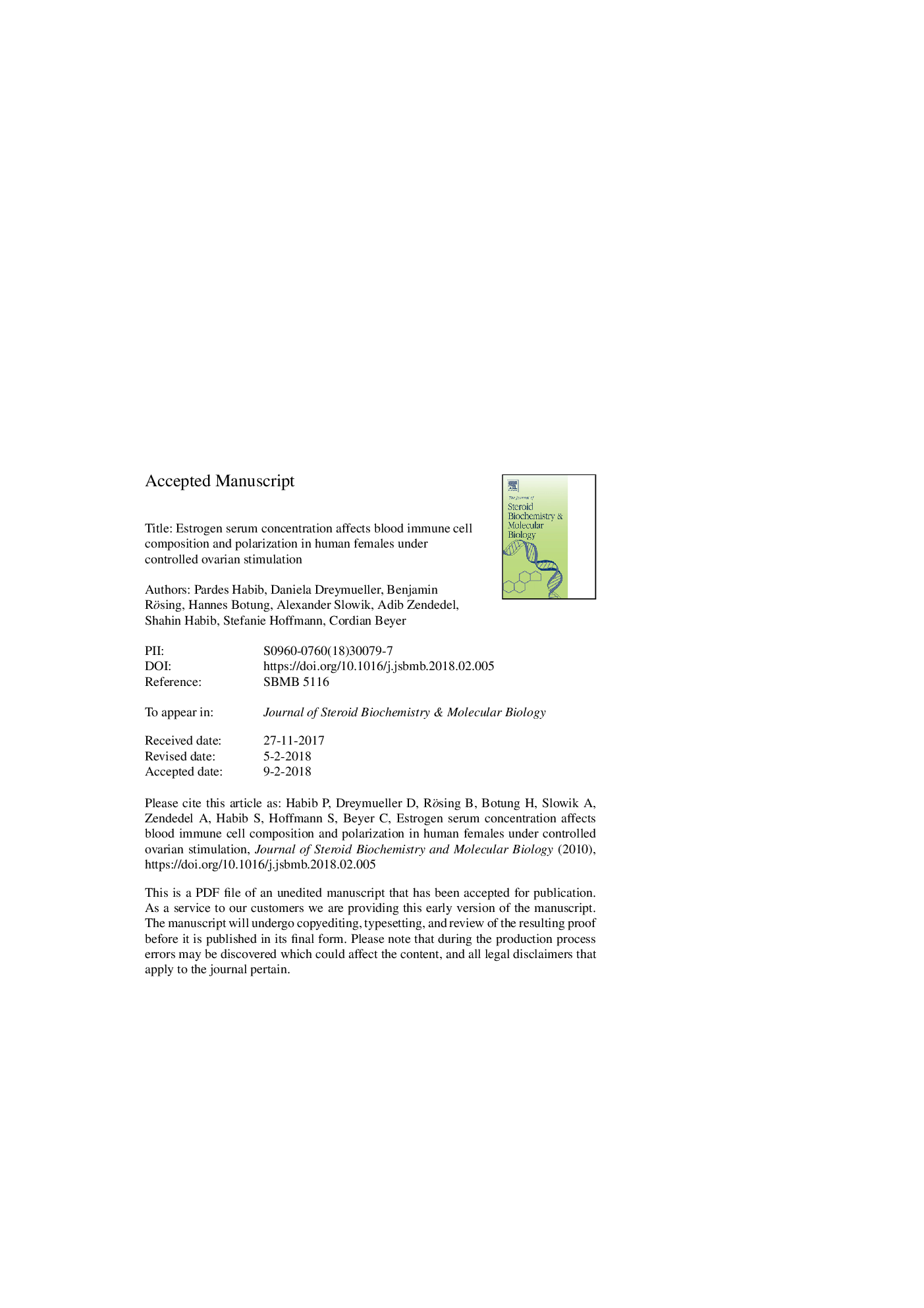| Article ID | Journal | Published Year | Pages | File Type |
|---|---|---|---|---|
| 8337862 | The Journal of Steroid Biochemistry and Molecular Biology | 2018 | 20 Pages |
Abstract
Estrogens modulate the immune system and possess anti-inflammatory properties. In line, immune cells express a variety of estrogen receptors (ER) including ER-alpha and -beta. In the present study, we examined the influence of 17beta-estradiol (E2) serum concentrations on blood leukocyte composition and their ex vivo polarization/activation status by FACS analysis in sub-fertile human females under controlled ovarian stimulation (COS). Using a set of cell-type and polarization-specific markers, we demonstrate that increased 17Ã-estradiol (E2) serum concentrations yield an overall increase in leukocytes, neutrophils and monocytes but decreased lymphocytes. There was a clear ratio shift towards an increase in M2 monocytes with a protective quality and an increase in T-helper cells compared to a decrease in cytotoxic T-cells. These data support experimental findings and clinical trials, i.e. related to multiple sclerosis and other autoimmune-related diseases, that have shown a down-regulation of CD8(+) T cells and up-regulation of T-regulatory cells. Further studies have to pinpoint to which extent the immune system/-responsiveness of otherwise healthy female patients is affected by medium-term systemic E2 variations.
Related Topics
Life Sciences
Biochemistry, Genetics and Molecular Biology
Biochemistry
Authors
Pardes Habib, Daniela Dreymueller, Benjamin Rösing, Hannes Botung, Alexander Slowik, Adib Zendedel, Shahin Habib, Stefanie Hoffmann, Cordian Beyer,
